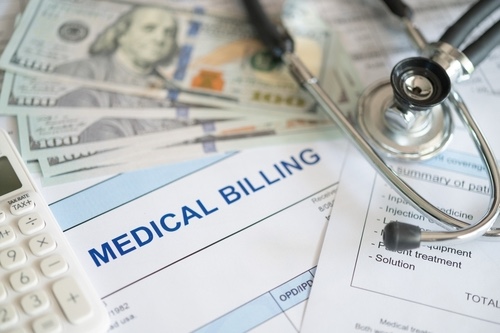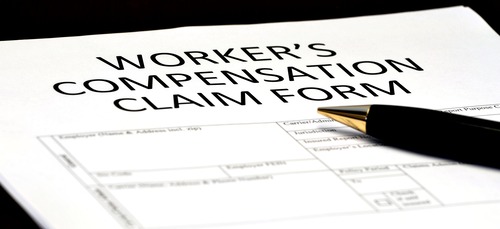When Is It Too Late to Go to the Doctor After a Car Accident?
After a car accident, many people feel fine in the immediate aftermath. The adrenaline and shock from the crash can mask symptoms of injuries, leading accident victims to delay seeking medical attention. However, delaying treatment can have serious consequences for both your health and your ability to file a successful injury claim. In this article, we’ll explore the importance of prompt medical attention, the dangers of hidden injuries, and how timing affects personal injury claims.
Importance of Seeking Medical Attention
Seeking medical attention after a car accident should be a top priority, even if you feel fine initially. Some injuries, such as soft tissue injuries or traumatic brain injuries, may not present symptoms immediately but can become serious if left untreated. Whiplash, internal injuries, and other conditions often have delayed symptoms that worsen over time.
Prompt medical attention is critical for catching these hidden injuries early. Early diagnosis allows for effective treatment, reducing the risk of chronic pain or long-term complications. Additionally, timely medical treatment creates a clear record of your injuries, which is essential for any personal injury claim. Without this documentation, insurance companies may argue that your injuries are unrelated to the accident, making it harder to pursue compensation.
Delaying treatment not only jeopardizes your recovery but also weakens your claim. Insurers often use delays as a reason to dispute the severity or cause of injuries. By seeing a doctor promptly, you protect both your health and your legal rights.
Types of Injuries with Delayed Symptoms
Many car accident injuries have delayed symptoms that can take hours, days, or even weeks to appear. Traumatic brain injuries, such as concussions, are common in car crashes. Symptoms like headaches, confusion, or dizziness may not manifest immediately but can lead to severe complications if ignored. Left untreated, brain injuries can cause long-term cognitive and emotional issues.
Whiplash is another common injury that often goes unnoticed initially. This condition, caused by the sudden jerking motion of the neck, can lead to neck pain, stiffness, and headaches. While some people think whiplash will resolve on its own, untreated whiplash can result in limited mobility and chronic discomfort.
Internal injuries are particularly concerning because they are not always visible. Damage to organs or internal bleeding can occur without external signs, making it crucial to watch for symptoms like abdominal pain or nausea. These injuries can become life-threatening if not treated promptly. Soft tissue injuries, such as sprains and strains, may seem minor but can lead to ongoing pain and restricted movement if ignored.
Medical Treatment After a Car Accident
Medical treatment is not only vital for your recovery but also plays a key role in supporting your personal injury claim. Medical records, including treatment plans, test results, and medical bills, serve as crucial evidence of the injuries you sustained and the care you received. This documentation demonstrates the severity of your injuries and the impact they have on your daily life.
Insurance companies rely heavily on this evidence to evaluate claims. Detailed medical records can strengthen your case by proving that your injuries are directly related to the car accident. On the other hand, gaps in treatment or delayed visits to a doctor can weaken your claim, giving insurers grounds to argue that your injuries are less severe or unrelated to the accident.
Legal Considerations
In Florida, the statute of limitations for filing a personal injury claim after a car accident is generally two years from the date of the crash. However, waiting too long to seek medical attention can complicate your case. Timely medical treatment is essential for documenting your injuries and ensuring you have the necessary evidence to pursue compensation.
If you delay seeing a doctor, insurance companies may argue that your injuries were caused by something other than the car accident. This can make it difficult to recover fair compensation for medical expenses, lost wages, and pain and suffering. Consulting an experienced car accident lawyer early in the process can help protect your rights and ensure you meet all legal deadlines.
Working with an Experienced Car Accident Lawyer
After a car accident, navigating the claims process can be overwhelming, especially if you’re dealing with serious injuries. A skilled personal injury lawyer can guide you through this process, ensuring you receive fair compensation for your injuries and medical expenses. They can help you gather and organize medical records, negotiate with insurance companies, and represent you in court if necessary.
An experienced lawyer understands the tactics insurers use to minimize payouts. By working with a lawyer, you can focus on your recovery while they handle the legal and administrative aspects of your case. A car accident lawyer’s expertise can make a significant difference in the outcome of your claim.
Post-Accident Procedures
One of the first steps after a car accident is to contact your insurance company. Most insurance companies have specific procedures for filing claims, and prompt reporting is essential. Delaying medical treatment can complicate this process, as insurers may argue that your injuries are unrelated to the accident. By seeking prompt medical attention, you establish a clear link between the crash and your injuries, strengthening your claim.
If you experience any pain or unusual symptoms after the accident, don’t wait to see a doctor. Even if you think your injuries are minor, it’s better to be cautious and seek a medical evaluation. Urgent care clinics can provide quick assessments if you can’t see your primary care physician. Timely medical attention not only aids your recovery but also ensures you have the documentation needed for your injury claim.
When Is It Too Late to Go to the Doctor After a Car Accident?
While there is no hard deadline for seeing a doctor after a car accident, delaying treatment can harm both your health and your claim. Ideally, you should seek medical attention within 72 hours of the crash. Many insurance companies view this as a reasonable timeframe to link injuries to the accident. Waiting longer can make it more challenging to prove causation, especially if there are gaps in your medical history.
That said, it’s never truly “too late” to see a doctor if you’re experiencing symptoms. Even weeks or months after the accident, a medical evaluation can uncover hidden injuries and provide a basis for treatment. However, the longer you wait, the more difficult it becomes to establish a direct connection between the accident and your injuries.
Call Us Today for Help With Your Car Accident Case
Prompt medical attention after a car accident is crucial for both your health and your legal rights. Hidden injuries, such as traumatic brain injuries, whiplash, and internal injuries, may not show symptoms immediately but can lead to severe complications if left untreated. Seeking timely medical treatment ensures early diagnosis and effective care, reducing the risk of long-term issues.
In addition to protecting your health, prompt medical attention strengthens your personal injury claim by providing clear evidence of your injuries. Delaying treatment gives insurance companies an opportunity to dispute your claim, making it harder to recover fair compensation. Consulting an experienced car accident lawyer can help you navigate the claims process and secure the compensation you deserve.
If you’ve been in a car accident, don’t wait to seek medical attention. Miami Lawyers 360 is here to help. Contact us today for a free consultation at (786) 686-2857 to discuss your case and explore your legal options. Our team is dedicated to helping you recover physically, emotionally, and financially after a crash.






